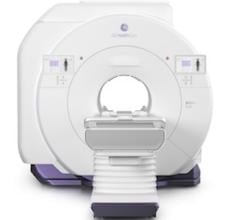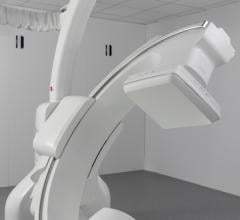
June 2, 2025 — Clairity, Inc., a digital health innovator advancing AI-driven healthcare solutions, has received U.S. Food and Drug Administration (FDA) De Novo authorization for Clairity Breast, a novel, image-based prognostic platform designed to predict five-year breast cancer risk from a routine screening mammogram. With this authorization, Clairity is planning to launch among leading health systems through 2025 – propelling a new era of precision medicine in breast cancer.
Each year, more than 2.3 million new cases of breast cancer are diagnosed worldwide1, including more than 370,000 cases in women in the United States2. Early detection and risk reduction are powerful tools to save lives, but their most effective deployment depends on accurate risk assessment. Most risk assessment models rely heavily on age and family history to predict risk. However, 85% of women diagnosed with breast cancer have no family history, and nearly half have no identifiable risk factors3,4. In addition, traditional risk models, built on data from predominantly European Caucasian women, have not generalized well to women of diverse racial and ethnic backgrounds5.
Clairity Breast analyzes subtle imaging features on screening mammograms that correlate with future breast cancer risk, making early risk prediction feasible based on a screening mammogram alone. The result is a validated five-year risk score delivered to healthcare providers through existing clinical infrastructures, supporting more personalized follow up care.
“For more than 60 years, mammograms have saved lives by detecting early-stage cancers. Now, advancements in AI and computer vision can uncover hidden clues in the mammograms – invisible to the human eye – to help predict future risk,” said Dr. Connie Lehman, founder of Clairity, who is also a breast imaging specialist at Mass General Brigham. “By delivering validated, equitable risk assessments, we can help expand access to life-saving early detection and prevention for women everywhere.”
“Personalized, risk-based screening is critical to improving breast cancer outcomes, and AI tools offer us the best opportunity to fulfill that potential,” said Dr. Robert A. Smith, Senior Vice President of Early Cancer Detection Science at the American Cancer Society. “By integrating AI models that assess individual risk, we can better identify women at higher risk, and those who may benefit from supplemental screening methods, such as MRI, improving early detection and more effective prevention strategies.”
“Clairity’s FDA authorization is a turning point for more women to access the scientific advances of AI-driven cancer risk prediction,” said Larry Norton, Founding Scientific Director of the Breast Cancer Research Foundation. “Breast cancer is rising, especially among younger women, yet most risk models often miss those who will develop the disease. Now we can ensure more women get the right care at the right time.”
“What makes the availability of Clairity Breast a true sea change is that we’re now predicting risk of future cancer from patterns in breast tissue, in an otherwise normal screening, before it’s even there,” said Jeff Luber, CEO of Clairity. “Clairity Breast is designed to fit seamlessly into the current clinical infrastructure to help providers scale precision prevention – with the goal of reducing late-stage diagnoses, lowering costs, and saving more lives.”
To learn more, visit: clairity.com/clairity-breast/
Be the first to know when it launches, and how you can get it: clairity.com/first-to-know/
|
1 https://acsjournals.onlinelibrary.wiley.com/doi/10.3322/caac.21834 |
|
3 https://www.who.int/news-room/fact-sheets/detail/breast-cancer |


 February 20, 2026
February 20, 2026 









